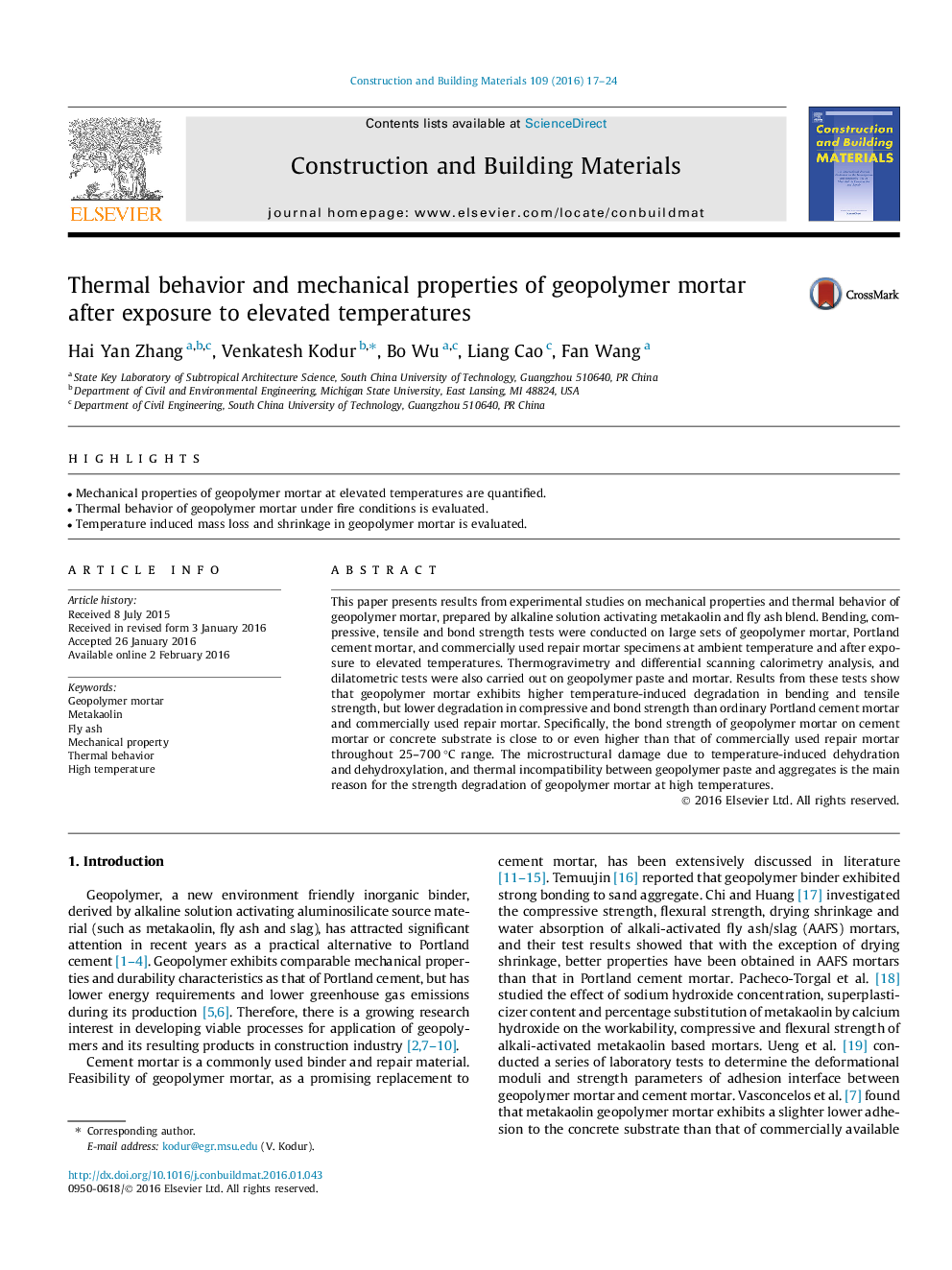| Article ID | Journal | Published Year | Pages | File Type |
|---|---|---|---|---|
| 256271 | Construction and Building Materials | 2016 | 8 Pages |
•Mechanical properties of geopolymer mortar at elevated temperatures are quantified.•Thermal behavior of geopolymer mortar under fire conditions is evaluated.•Temperature induced mass loss and shrinkage in geopolymer mortar is evaluated.
This paper presents results from experimental studies on mechanical properties and thermal behavior of geopolymer mortar, prepared by alkaline solution activating metakaolin and fly ash blend. Bending, compressive, tensile and bond strength tests were conducted on large sets of geopolymer mortar, Portland cement mortar, and commercially used repair mortar specimens at ambient temperature and after exposure to elevated temperatures. Thermogravimetry and differential scanning calorimetry analysis, and dilatometric tests were also carried out on geopolymer paste and mortar. Results from these tests show that geopolymer mortar exhibits higher temperature-induced degradation in bending and tensile strength, but lower degradation in compressive and bond strength than ordinary Portland cement mortar and commercially used repair mortar. Specifically, the bond strength of geopolymer mortar on cement mortar or concrete substrate is close to or even higher than that of commercially used repair mortar throughout 25–700 °C range. The microstructural damage due to temperature-induced dehydration and dehydroxylation, and thermal incompatibility between geopolymer paste and aggregates is the main reason for the strength degradation of geopolymer mortar at high temperatures.
